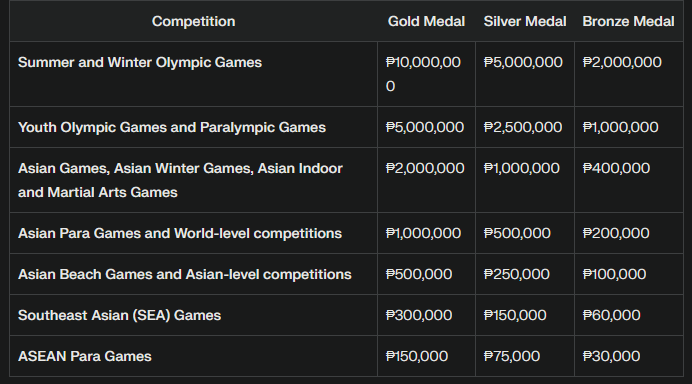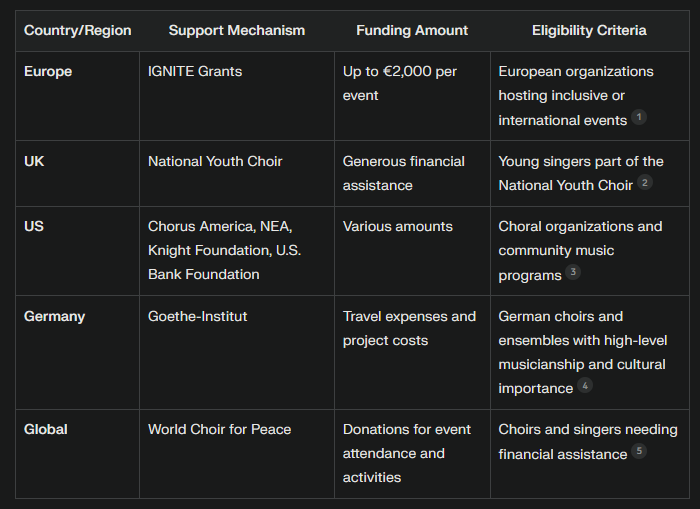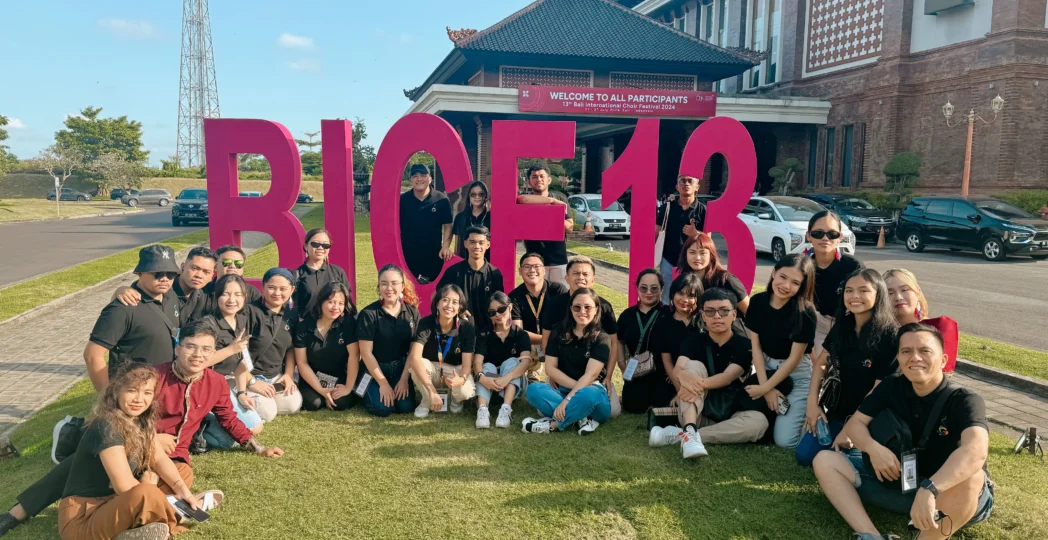In the Philippines, support for athletes and choirs varies greatly. This is especially true for funding.” Filipino athletes often get financial aid. In contrast, choirs, despite their global fame, get little support. This article explores why funding differs for Filipino athletes and choirs. It examines their effects on both groups and ways to address the gaps.
Financial Support for Filipino Athletes

Filipino athletes have long made the nation proud. To show its gratitude, the Philippine government has funded them. Various government initiatives and resolutions, such as House Resolution 1877, have been implemented to support these athletes. This resolution seeks to reward those who excel in international competitions with financial incentives.
The Philippine Sports Commission (PSC) manages the funds designated for athlete support. This budget offers scholarships and rewards for top athletes, including those in grand prix events. Notable examples include Olympians like Carlos Yulo and Hidilyn Diaz, who have received financial incentives for their remarkable performances. These rewards motivate the athletes and help them focus on their chosen sport without worrying about financial constraints.
Nonetheless, these efforts are met with persistent challenges. Financial aid is often insufficient for athletes, especially those still developing their careers. Support favors those with international success. It’s time for a more inclusive approach that supports all athletes, regardless of their career stage, to ensure they have the resources they need to compete.
What is the financial support for Filipino Choirs?

Despite their cultural and global contributions, Filipino choirs receive little funding. Many Filipino choirs have excelled in international choral competitions, bringing home awards that highlight the Philippines’ rich musical talent and making us all proud.
The choirs bring immense recognition to the country. Yet, their financial rewards are nowhere near those of athletes. This gap raises questions about the value of talents and achievements in the Philippines. Athletes get awards and scholarships, while choirs, who also contribute significantly to our cultural identity, must fundraise to survive.
Comparing the Incentives of Athletes and Choirs
Incentives for Filipino Athletes
Based on Republic Act No. 10699, Filipino athletes receive the following cash incentives for winning medals in various international competitions:
Coaches of winning athletes receive 50% of the athletes’ cash incentives.

Coaches of winning athletes receive 50% of the athletes’ cash incentives.
Incentives for Filipino Choirs
In contrast, Filipino choirs receive significantly less financial support. For instance:
Ilocos Norte’s World Choir Champion: Received ₱500,000 in cash aid from the local government.
Senate Bill No. 2170: Proposes more significant investment in performing arts groups, including choirs, but this bill is still under consideration and has not yet been enacted.
Numerical Comparison
To illustrate the disparity, compare the rewards for winning a gold medal in the Olympics to those for winning a major international choir competition.

Analysis
Government Support: Athletes get big rewards for winning medals. Olympic gold medalists can get up to ₱10,000,000. In contrast, choirs receive much less, a notable example being ₱500,000 for a world championship win.
Private Sector Support: Athletes often receive extra rewards from the private sector, significantly increasing their total incentives. Choirs, however, rarely receive such private-sector support.
There are efforts to boost support for performing arts groups (e.g., Senate Bill No. 2170). Still, these are not yet in effect, leaving choirs with minimal financial backing compared to athletes.
Why the Assumption that Choirs Should Not Demand Compensation is Wrong and Unfair.
The belief that choirs should not be paid is flawed. It is based on the idea that the Olympics differ from international choir competitions. Here’s why:
Olympic Ideals in Choir Competitions:
The World Choir Games, often called the “Olympics of choral singing,” are based on the same ideals as the Olympic Games. Like the Olympics, they aim to unify people and nations through peaceful and fair competition.
Scale and Scope:
The World Choir Games are the top global choral festival and competition. They attract thousands of participants from many countries. They are as big as the Olympics, which shows the event’s global prestige.
Contributions to National Pride and Cultural Diplomacy
Bringing Honor to the Country:
Like athletes, choirs represent their country. They bring honor and recognition through their achievements. Winning international choir competitions boosts the country’s cultural prestige. It also showcases its artistic talents to the world.
Cultural Diplomacy:
Choirs are vital to cultural diplomacy. Through music, they build goodwill and understanding. Like sports, choirs can bridge divides. So, their contributions are equally valuable.
Physical and Emotional Demands
Physical Demands:
High-level choral singing is demanding. It requires practice, breath control, and stamina. It is as tough as it is for athletes. Preparing for and performing in choir competitions involves significant physical exertion and discipline.
Emotional and Team Dynamics:
Choirs, like sports teams, rely on teamwork, coordination, and emotional unity to perform at their best. The community and teamwork in choirs are like that in team sports, justifying a need for the same support and recognition.
The PCIDA Law for the Creative Industry
The Philippine Creative Industries Development Act (PCIDA), or Republic Act No. 11904, significantly addresses the funding gaps for Filipino athletes and choirs. It aims to develop and promote the creative industries, including choirs.
Legislative Framework
Purpose of PCIDA: The Act aims to boost Philippine creative industries by protecting and empowering creative firms, artists, and other stakeholders.
Establish the Philippine Creative Industries Development Council (PCIDC). It must implement a long-term plan to develop and promote the creative industries, ensure funding, and provide incentives to sustain Filipino excellence in these fields.
Financial and Technical Support
Funding and Incentives: The Act funds creative industries. It includes programs for assistance, investment, and loans. It also guarantees loans for micro, small, and medium enterprises (MSMEs) in these industries.
Programs and Initiatives: PCIDA outlines various programs to nurture human resources, ensure financial support, and provide incentives to encourage and sustain excellence in the creative industries. This includes technical, technological, and financial assistance programs for developing, processing, commercializing, and marketing creative goods and services.
Strategic Development Plan
Philippine Creative Industries Development Plan (PCIDP): The council must create a plan. It must include economic goals, KPIs, and investments to support the creative industries. The plan is reviewed periodically to meet the sector’s evolving needs.
Collaboration and Partnerships: The Act encourages stronger linkages and collaborations among stakeholders in the creative industries and the government, promoting local and international cooperative exchanges and partnerships.
Addressing Disparities
Equitable Support: PCIDA will fix the funding gap between athletes and choirs and provide a robust and well-funded framework for the creative industries. The Act, part of the performing arts, supports choirs and recognizes their role in the country’s culture and economy.
Promotion and Recognition: The Act stresses promoting and recognizing creative workers, including choirs. It ensures they get the same support and incentives as athletes.
How Other Countries Support Their National Choirs Financially
Grants and Financial Assistance
European Choral Association (IGNITE Grants)
The goal is to support groups hosting choral events. They should aim to attract international audiences or make their events more inclusive.
Funding: Up to €2,000 per event.
Eligibility: Open to European organizations hosting events before the end of October 2024. Events must involve training and cannot be solely concerts or competitions
National Youth Choir (U.K.)
Purpose: To provide financial assistance to promising young singers from any background.
Funding: Generous financial aid, although specific amounts are not detailed.
Eligibility: Open to young singers who are part of the National Youth Choir
Chorus America (U.S.)
Purpose: To support choral organizations in the U.S. and Canada through various grants.
Funding: Multiple grant opportunities, with specific amounts varying.
Eligibility: Open to choral organizations in the U.S. and Canada
National Endowment for the Arts (U.S.)
Purpose: To fund projects that create art and deliver it to underserved populations. We aim to enrich communities through art and support art research.
Funding: Various grant opportunities, with specific amounts varying.
Eligibility: Open to community choruses and other art organizations in the U.S.
Goethe-Institut (Germany)
Purpose: To fund music projects abroad involving German choirs and amateur and newcomer ensembles.
Funding: Covers part of travel expenses and other project-related costs.
Eligibility: The project must be a high-level, culturally important artistic exchange. The bulk of the funding should be secured by the participant’s contributions and/or public/private-sector grants.
Private Sector and Non-Profit Support
Knight Foundation (U.S.)
Purpose: To support arts organizations that excel in art, authenticity, and inclusion. They should also be innovative with technology.
Funding: Various grant opportunities, with specific amounts varying.
Eligibility: Preference is given to organizations that meet the foundation’s criteria
U.S. Bank Foundation (U.S.)
Purpose: To support community music programs for adults and children, particularly in low or moderate-income areas.
Funding: Various grant opportunities, with specific amounts varying.
Eligibility: Open to community music programs across the U.S.
World Choir for Peace
Purpose: To support choirs and singers globally who struggle financially to attend events.
Funding: Donations fund event attendance, online workshops, concert tours, and other activities.
Eligibility: Open to choirs and singers who need financial assistance to participate in events organized by the World Choir for Peace.

Recommendations
Several policy modifications are necessary to address these disparities. First, the government should fund a solid arts and music education program, like it does for sports. This program should fund choirs with incentives, scholarships, and training. They need resources to excel in their field.
It is vital to raise awareness of Filipino choirs’ achievements. Choral music is an integral part of our cultural heritage. By showing their successes and challenges, including in choral conducting, we can gain more government and private sector support. This increased awareness can lead to more funding opportunities and sponsorships for choirs.
The government should also implement fair financial support for athletes and choirs. This includes revising resolutions and budgets to allocate more funds to the performing arts. Ensuring that both groups receive adequate support can foster a more inclusive environment where all talent and achievement are valued equally.

